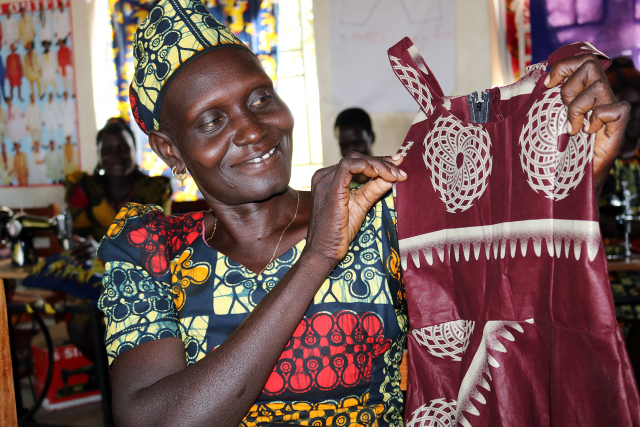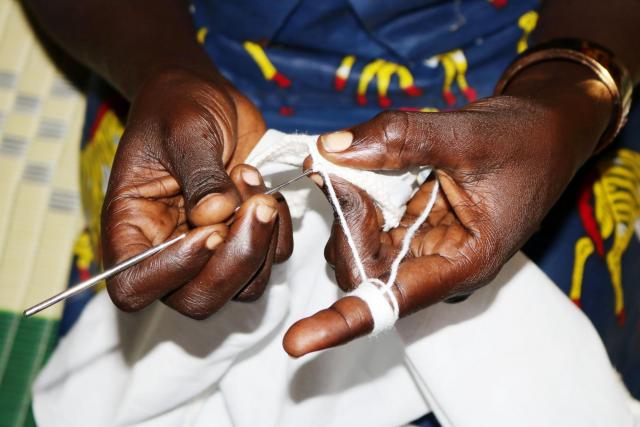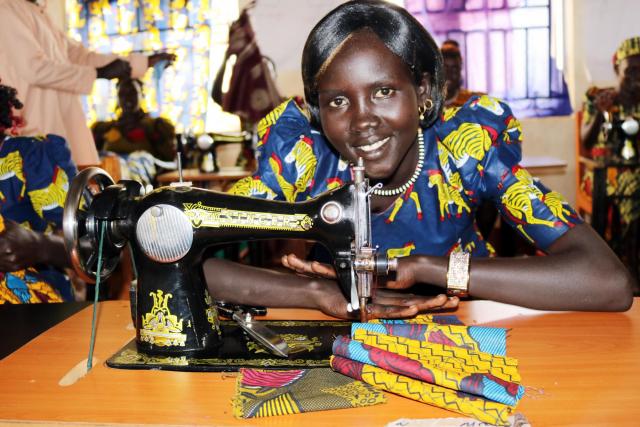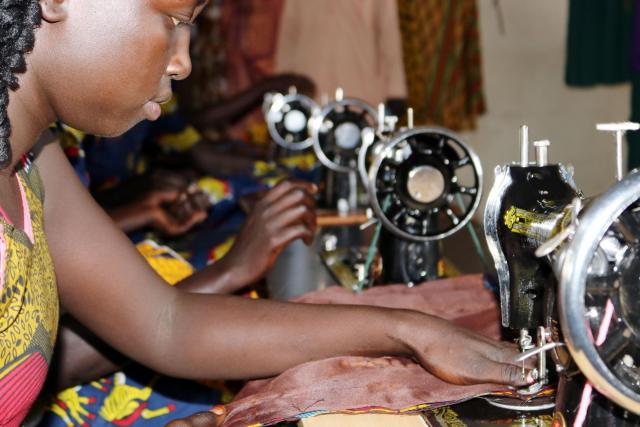Married off at 16 in exchange for 50 cows

ADJUMANI - Margaret Tisa (not real name) is a South Sudanese refugee in Nyumanzi settlement, Adjumani district. She was 16 years old when her father gave her hand in marriage to Bior (not real name) in exchange for 50 cows in 2015.
Denied education and living in rural Jalei in South Sudan’s Jonglei state, the early marriage all but shattered Tisa’s long desire to move to the capital Juba to lead a better life. “I had wanted to make long days in the garden history by acquiring formal training in either hair dressing or tailoring, from which I would then hopefully earn a decent living,” she says.
Tisa is just one of the many girls married off when they are still children as indicated by the 2010 Sudan Household Health Survey (SHHS). The SHHS report states that 40% of the girls in South Sudan are married off before reaching 18 years of age.

A mother at 17
A year into her marriage, Tisa became a mother.
“I hated my home village and I did not want to raise my child there. I knew that she would not get an opportunity to go to school and once she became a teenager, she would also be ‘sold’ off like I was,” she says. Tisa had almost lost her life during delivery at home. She lost a lot of blood and was too weak to push the baby. She eventually did succeed with the help of a local midwife.
Both uneducated and in a remote place, Tisa and her husband afforded basics such as food from their farm, water from a village dam and milk from the 20 cows Bior was left with. “I had to cultivate our garden from dawn to dusk and graze the cows everyday just to get food and milk for my family,” says the teenage mother.
“I did all this alone, without help from my husband, yet I also had to cook, wash and clean the house.” Tisa says her husband treated her like a “slave” and reminded her that he had paid her father cows to marry her. “Bior told me he could use me for anything and that I had to work hard for him and our children,” she adds.

Civil war saves Tisa
While the latest South Sudan civil war is perceived as the worst thing to ever happen to the world’s youngest nation, to Tisa, it was a blessing in disguise. The conflict helped her escape her undesired marriage.
Together with her baby girl, Tisa was among the thousands that fled the civil war to neighbouring Uganda. However, she was later dragged back by her husband. She escaped a week later – back to Uganda, where she received and supported by the Office of the Prime Minister with humanitarian organisations, such as UN refugee agency UNHCR and the Lutheran World Federation (LWF).
“For the first time in a long time, I felt free, at peace, safe and happy. Finally, I could smile and laugh,” Tisa beams. “I was starting my life afresh – a happy life and, not the sad one I had lived in the past.”

Tailoring training
When Tisa heard about youth acquiring scholarships from LWF with funds from the Bureau of Population, Refugees and Migration (PRM), for training in vocational skills, such as tailoring, hairdressing and welding, she immediately applied online.
She had longed to do tailoring and hairdressing right from her childhood. In June this year, Tisa enrolled for a six-month-long training in tailoring at Nyumanzi Community Centre. Determined, she never misses any class.“I have mastered the art of making all kinds of clothes and I will graduate with a certificate in December. An uneducated village girl is now a professional tailor,” she delightedly says.
Jennifer Adong, a PRM project officer with LWF says, come graduation day, each graduand will receive a business start-up kit, including a tailoring machine and fabric.

“I am going to give my baby the best future. I will take her to school for the best education. I want her to become a doctor, who will serve the poor – one that will be a light and hope to the sick,” Tisa says.
Tisa is one of the 100 youth in Adjumani’s refugee settlements, who have attained vocational training with support from PRM and LWF. These efforts are aimed at providing youth income earning skills to improve their livelihoods and self-sustenance.
LWF appreciates PRM's support towards its humanitarian activities aimed at protecting lives and improving people's livelihoods in Adjumani district's settlements.

